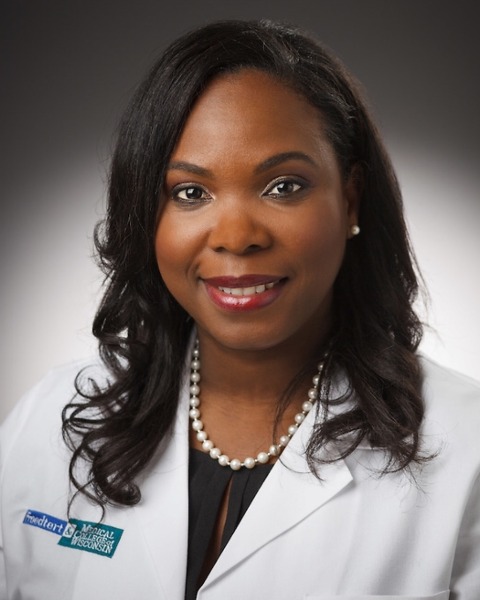Quality Improvement/Clinical Outcomes
87: Identifying Optimal Surgical Timing Relative to SARS-CoV-2 Infection Using COVID-19 Severity in Cancer Patients

Nathaniel B. Verhagen, BS
Medical Student
Medical College of Wisconsin
Wauwatosa, Wisconsin, United StatesDisclosure(s): No financial relationships to disclose

Nathaniel B. Verhagen, BS
Medical Student
Medical College of Wisconsin
Wauwatosa, Wisconsin, United StatesDisclosure(s): No financial relationships to disclose
- NK
Nicolas K. Koerber, BS
Medical Student
Medical College of Wisconsin, United StatesDisclosure information not submitted.
.jpg)
Salma A. Sheriff, BS
Clinical Research Coordinator
Medical College of Wisconsin
milwaukee, Wisconsin, United StatesDisclosure information not submitted.
- AS
Aniko Szabo, PhD
Professor
Medical College of Wisconsin, Department of Biostatistics, United StatesDisclosure information not submitted.

Callisia Clarke, MD, MS (she/her/hers)
Associate Professor of Surgery
Medical College of WisconsinDisclosure(s): No financial relationships to disclose
- UM
Ugwuji N. Maduekwe, MD, MPH
Associate Professor
Medical College of Wisconsin, Department of Surgery, Division of Surgical Oncology, United StatesDisclosure information not submitted.
- NW
Njeri Wainaina, MD
Associate Professor, Vice Chair
Medical College of Wisconsin, Department of Internal Medicine, United StatesDisclosure information not submitted.
- KL
Kathryn K. Lauer, MD
Professor, Vice Chair
Medical College of Wisconsin, Department of Anesthesiology, United StatesDisclosure information not submitted.
- KC
Kathleen K. Christians, MD
Professor
Medical College of Wisconsin, Department of Surgery, Division of Surgical Oncology, United StatesDisclosure information not submitted.
- JG
Jon Gould, MD, MBA
Professor
Medical College of Wisconsin, Department of General Surgery, United StatesDisclosure information not submitted.
- AK
Anai N. Kothari, MD, MS
Assistant Professor
Medical College of Wisconsin, Department of Surgery, Division of Surgical Oncology, United StatesDisclosure information not submitted.
Abstract Presenter(s)
First Author(s)
Author(s)
Prior literature suggests a need to delay elective surgery up to 8 weeks in patients with a previous SARS-CoV-2 infection to mitigate the risk of adverse postoperative events. However, these recommendations are broad without specific consideration of surgical procedures or factors related to the SARS-CoV-2 infection. The objective of this study was to identify optimal surgical timing in cancer patients with a prior history of COVID-19.
Methods: This study was a retrospective cross-sectional study using the National COVID Cohort Collaborative (N3C) centralized data resource. Patients who underwent select major surgeries after January 2020 were assessed for 30-day surgical outcomes. Cancer diagnoses, procedures, and outcomes were identified using standard SNOMED concepts. Patients with a history of COVID-19 prior to surgery were grouped by severity: non-hospitalized vs. hospitalized. Surgical timing relative to previous COVID-19 diagnosis was separated into three groups: 0-4 weeks, 4-8 weeks, and 8+ weeks. All analyses were performed using the N3C Data Enclave.
Results: The study included 133,469 cancer patients with 7,757 (5.8%) who had a history of COVID-19 prior to surgery. Patients with prior COVID-19 did not have significantly increased rates of 30-day mortality (1.1% vs. 0.9%, P=.11) or non-fatal adverse events (23% vs. 22%, P=.33). Of the patients with a history of COVID-19, 1,630 (16%) were hospitalized due to a prior infection. Patients hospitalized for COVID-19 had significantly increased rates of postoperative 30-day mortality (2.9% vs. 0.5%, P< .001) and non-fatal adverse events (38% vs. 20%, P< .001) when compared to patients with a history of non-hospitalized COVID-19. Multivariable regression examining risk for any adverse event in patients with non-hospitalized COVID-19 demonstrated patients to be at baseline risk at 0-4 weeks (aOR 1.02 [0.68-1.50]), 4-8 weeks (aOR 0.98 [0.65-1.43]) and 8+ weeks (aOR 0.97 [0.80-1.17]) when compared to patients without a history of COVID-19. Conversely, patients previously hospitalized for COVID-19 were at increased odds of adverse postoperative events at all assessed time points (Figure).
Conclusions: These data suggest prolonged delays from COVID-19 diagnosis to surgery are unnecessary among cancer patients not hospitalized for SARS-CoV-2 infection. However, there is a persistently elevated postoperative risk in patients who were hospitalized for treatment of COVID-19 prior to undergoing cancer surgery. Additional risk mitigation strategies beyond delaying surgery must be investigated.
Learning Objectives:
- Upon completion, participants will be able to understand the impact of SARS-Cov-2 infection on oncologic surgical procedures.
- Upon completion, participant will be able to list factors that can impact oncologic surgical outcomes such as COVID-19 severity and surgical timing relative to COVID-19.
- Upon completion, participant will be able to better understand how future institutional guidelines will be drafted surrounding COVID-19.
